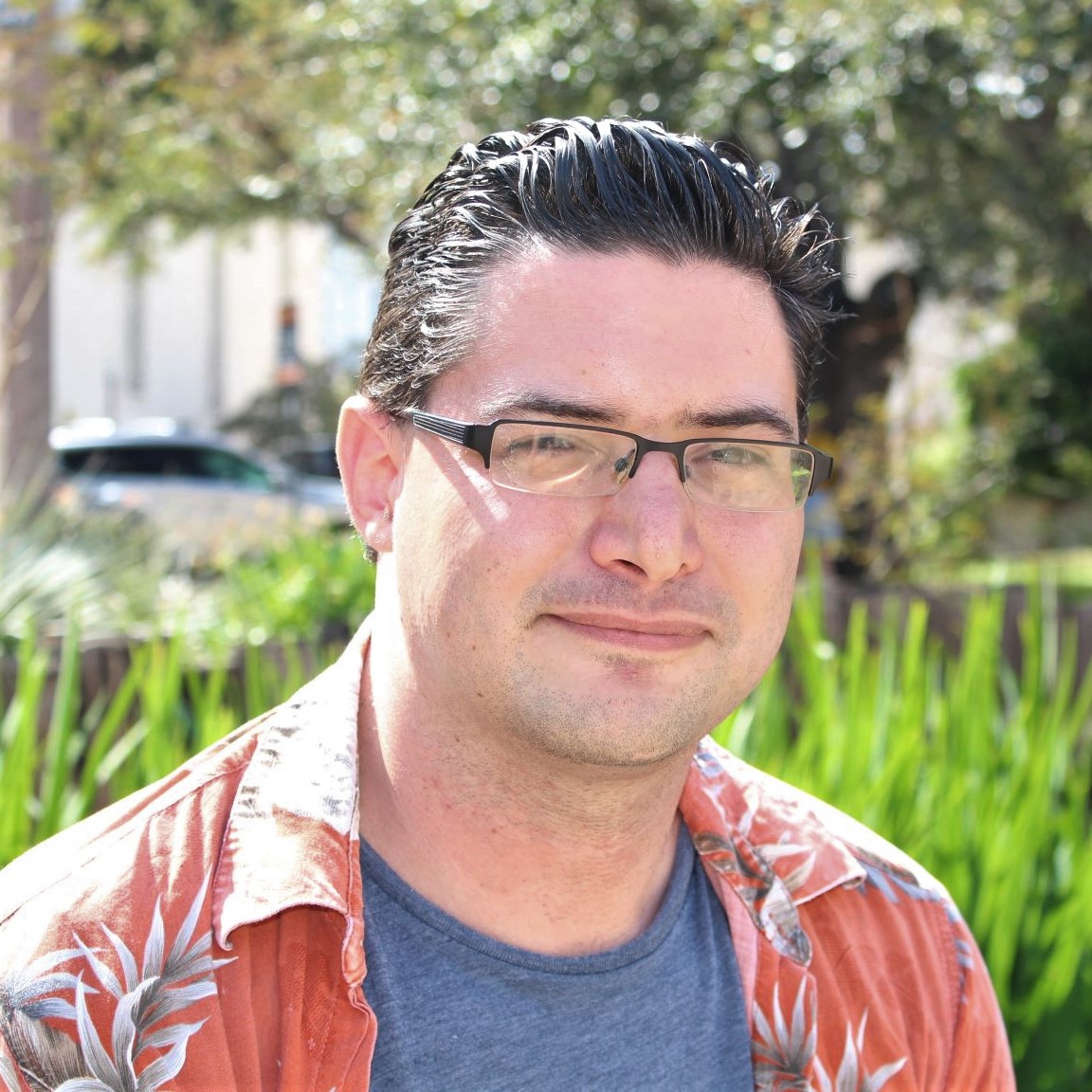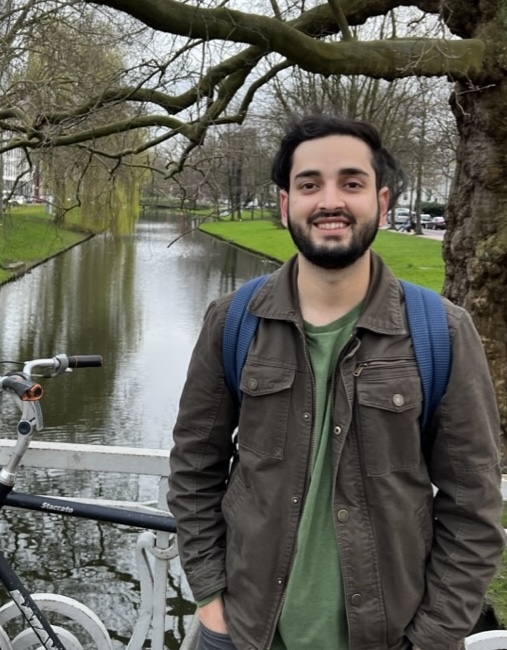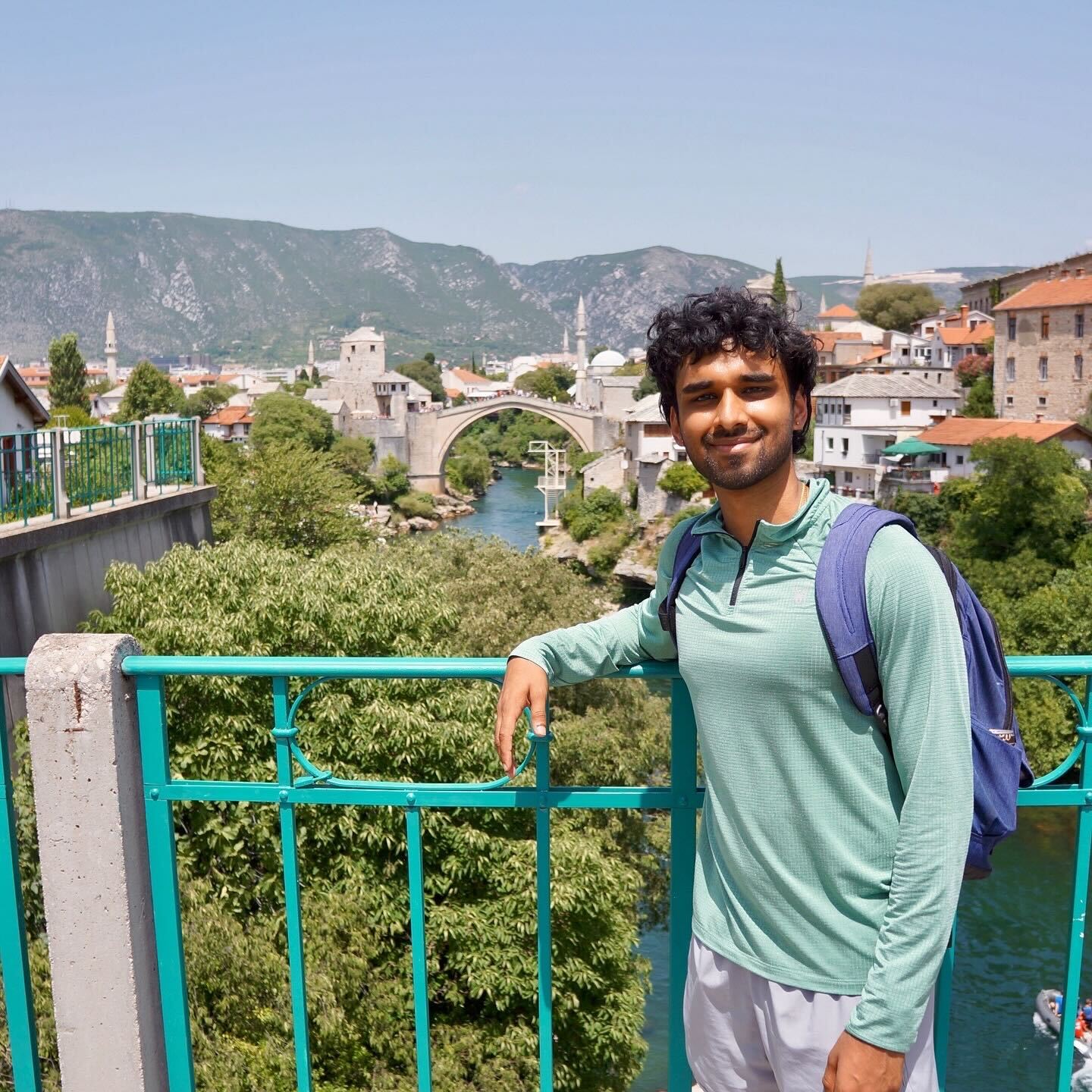Barrick Lab :: Team
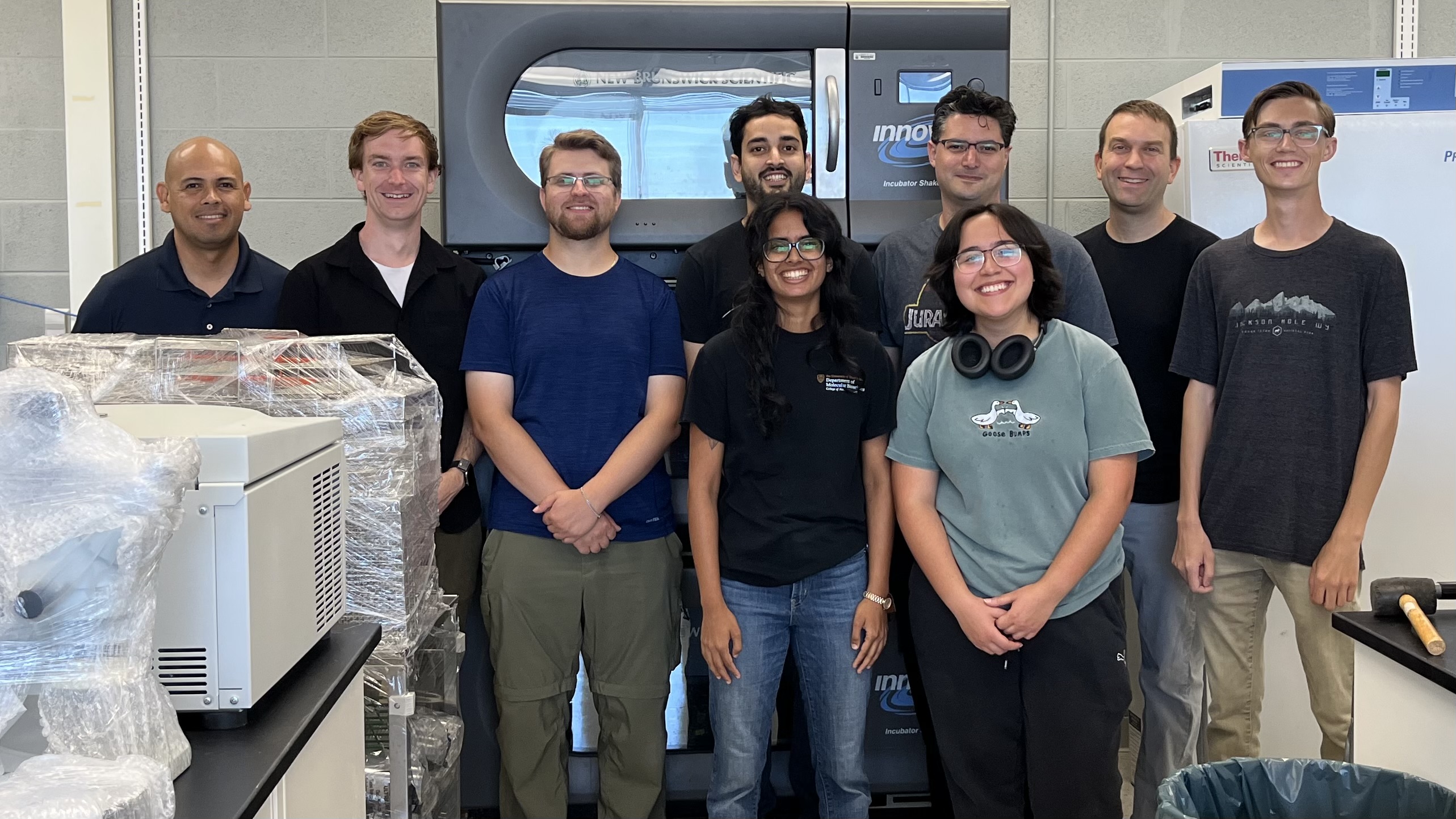
Principal Investigator
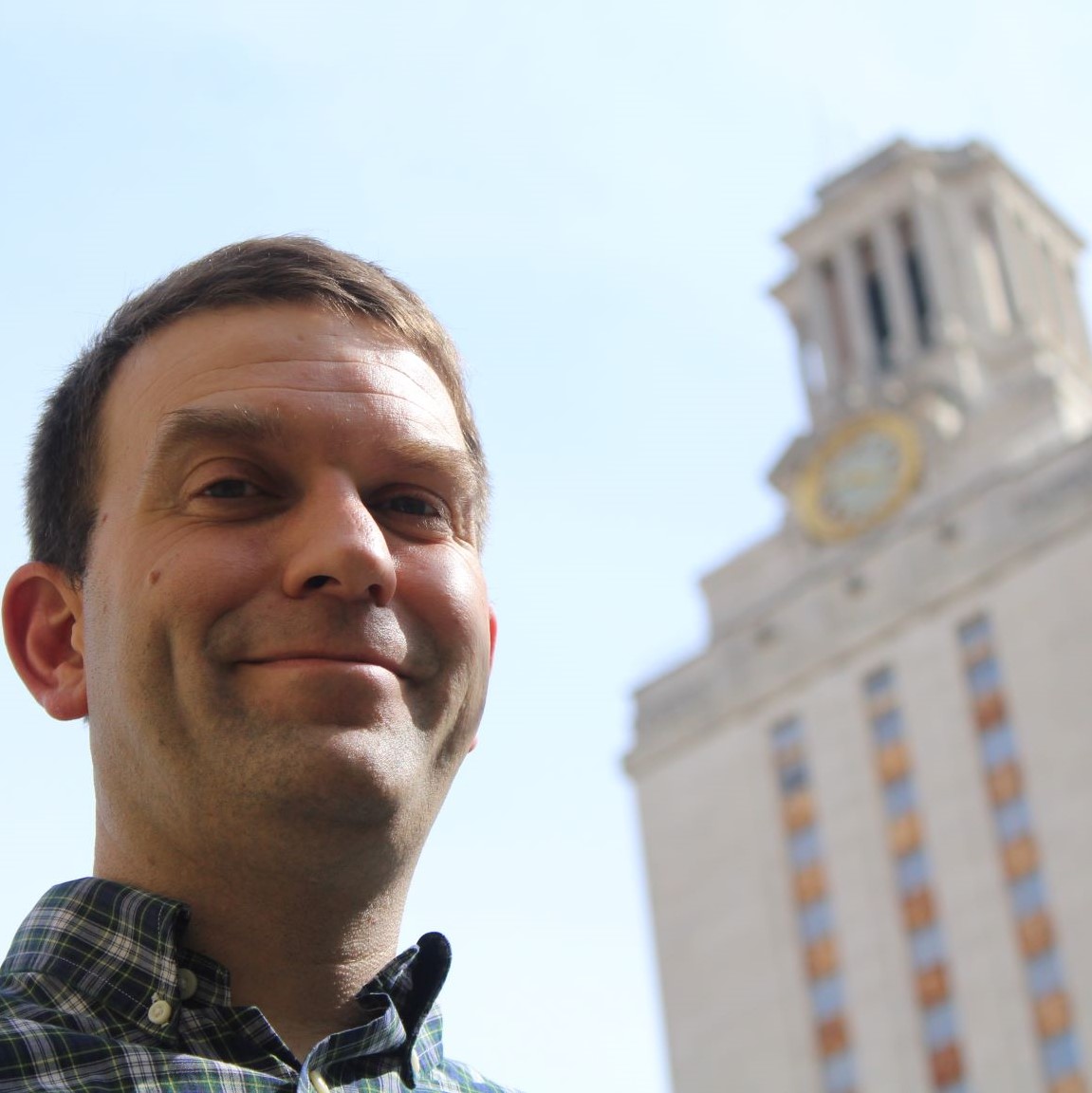 |
Prof. Jeffrey E. Barrick 🐋Hannah Professor of Microbiology, Genetics, & Immunology and Entomology (01/2011–present)B.S. Chemistry, Caltech Ph.D. Molecular Biophysics and Biochemistry, Yale University Postdoc, Michigan State University Professor of Molecular Biosciences, UT Austin (2011-2025) Twitter: @barricklab Prof. Barrick has a longstanding interest in fundamental and applied studies of molecular and microbial evolution. He is currently interested in intersections between those topics, synthetic biology, and entomology. He is an avid if plodding swimmer and enjoys the "classics" of literature, including a certain 19th century American novel involving a monomaniacal fascination with an albino cetacean. |
Lab Manager
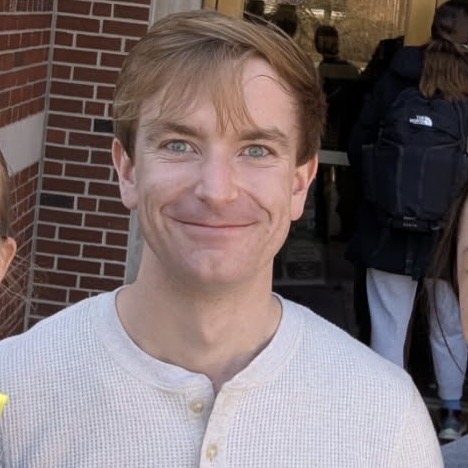 |
Devin Lake Lab Manager (08/2025 – present) |
Senior Researchers
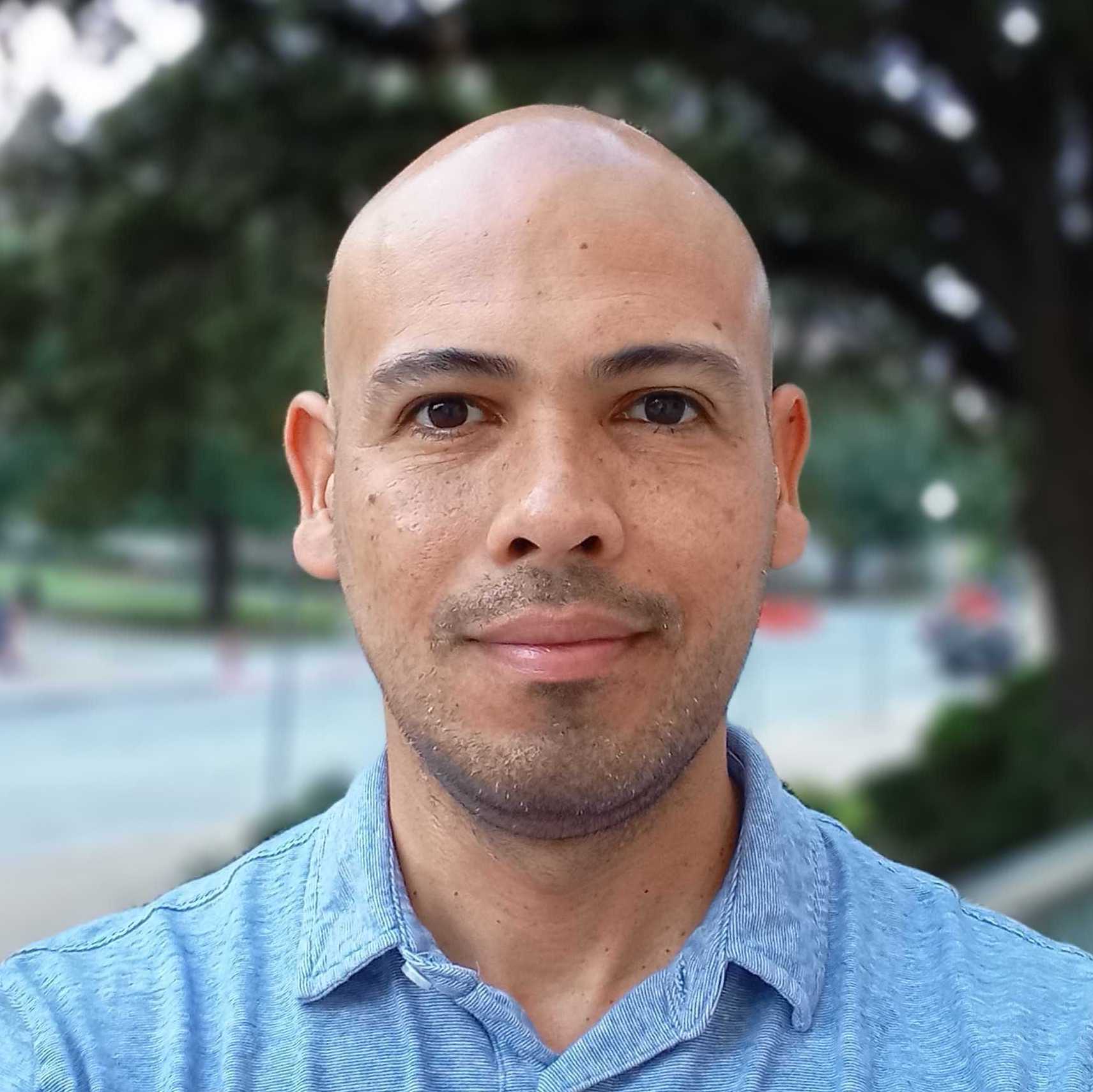 |
Dr. Lucio Navarro 🪲Research Fellow (08/2023 – present) Jointly advised with Nancy MoranB.S. Biology, Universidad Industrial de Santander, Colombia. Ph.D. Entomology, Purdue University, Indiana. Lucio is a Molecular Entomologist with broad research interests in arthropod genomics, insect-microbial symbiosis and insect-plant molecular interactions. He currently works on developing symbiont-mediated RNAi to be used on various applications, including functional genomics and future insect pest management methods. In his free time, Lucio enjoys stargazing and playing on little projects with Raspberry Pi microcomputers. |
Postdoctoral Fellows
Graduate Students
 |
A H M Zuberi Ashraf 🐼Microbiology Graduate Student (05/2022 – present)B.S. Biology (Biotechnology Concentration), Minor in Chemistry, Texas A&M University-Central Texas Email: ashraf.ahmz95@utexas.edu Zuberi is interested in evolution in symbionts and the different forces that drives it. He is currently working with the honeybee gut symbiont, Snodgrassella alvi. In the past, Zuberi worked as a MLS in a microbiology lab from Baylor Scott & White. During his undergraduate years, Zuberi studied the crop microbiome community in honeybees and how that affected honey composition. Outside of work, Zuberi loves to travel, go on hikes, and try the different types of food all over Austin |
 |
Anthony VanDieren 🦂Microbiology Graduate Student (04/2023 – present)B.S.E.S. Entomology, University of Georgia B.S.A. Biological Science, University of Georgia B.S.A. Chemistry, University of Georgia Email: avandieren@utexas.edu Anthony is interested in insects and their corresponding symbionts which affect many aspects of their physiology. Currently, Anthony works with aphids and is attempting to engineer their vertically inherited symbionts. Before coming to UT, Anthony worked as an analytical chemistry lab technician for Henkel and served as a staff entomologist for the Cranbrook Institute of Science in Michigan. Anthony was also an undergraduate reasearcher working on kissing bugs and their gut symbionts. Anthony is a serious entomologist and enjoys finding, rearing, and preserving various exotic insects and arachnids when not in lab. |
| |
Tyler de Jong 🪗Microbiology, Genetics, & Immunology Graduate Student (01/2024 – present)B.S. Biochemistry, University of Texas at Austin Email: tylerdejong@austin.utexas.edu Tyler is interested in gene accordions: adaptation systems used by microbes to rapidly diversify and evolve genes via recombination-driven expansions and contractions.To characterize these systems, he is replicating the process through the directed evolution of fluorescent proteins in the naturally competent bacterium ADP1. Before starting graduate school, Tyler worked at a clinical reference lab processing COVID-19 tests and then as a research associate in Nancy Moran’s lab studying the honeybee gut microbiome. Outside of the lab, Tyler enjoys taking walks in Austin's different Greenbelts and hanging out with his cat. |
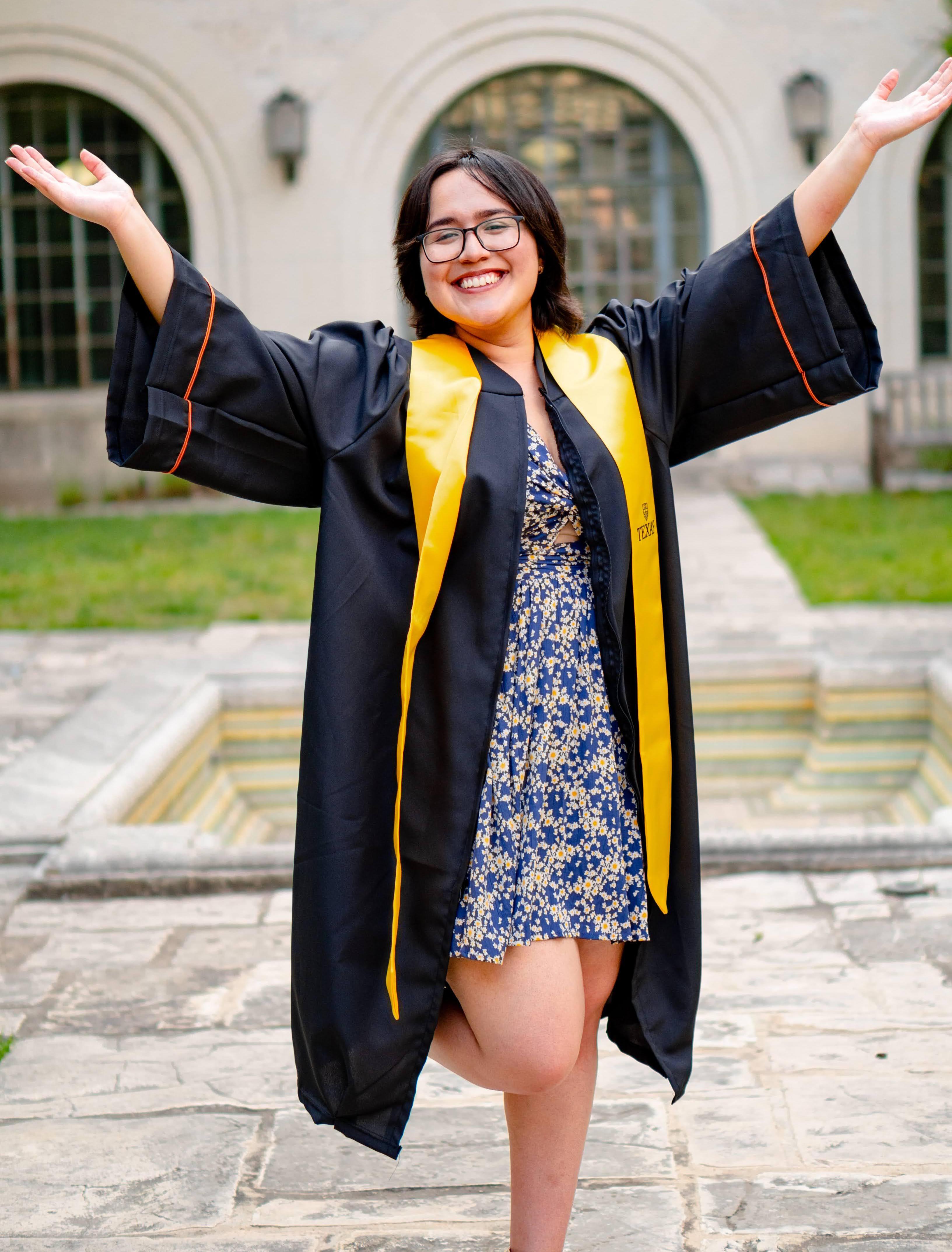 |
Kathleen Sotelo 🐶Microbiology Graduate Student (01/2025 – present)B.S. Biology, Microbiology and Infectious Diseases, University of Texas at Austin Email: ksot6127@utexas.edu Kathleen is interested in further studying symbionts found within insects and how they can influence their hosts. Currently she is working on genetically manipulating honeybee symbionts to secrete peptides that protect their host from pathogens. During and post-undergrad she worked in Nancy Moran’s lab where she aided in projects involving honeybee gut microbiome, took part in characterizing novel Orbaceae species found in the gut of Drosophila, and was in charge of lyophilizing bacterial strains utilized in previous work published by the lab. Outside of work her hobbies include reading, playing video games, and spending time with her dog. |
 |
Ira Zibbu 🐁Cell and Molecular Biology Graduate Student (01/2025 – present)BS-MS in Biology with a minor in Data Science, Indian Institute of Science Education and Research Thiruvananthapuram Email: irazibbu@utexas.edu Personal Website: https://ira-zibbu.github.io/ Part evolution enthusiast, part computer nerd, Ira is broadly interested in combining the open-ended nature of experimental evolution with the power of next-generation sequencing and molecular biology to ask questions about how microbes evolve. At the Barrick Lab, she is working to understand how selection, mutation, contingency and drift interact to shape the structure and function of bacterial genomes, and how in turn certain genomic configurations can preclude or promote specific future evolutionary paths. In the context of the LTEE, Ira is looking at large scale genome rearrangements to understand how they evolved, and the effects they have had on the populations. As an undergraduate, Ira hopped around a lot, tinkering with projects on insect ecology, differential equation models of chemotaxis, synthetic biology, and machine learning for protein-ligand affinity predictions. Ira strongly believes that the scientific process benefits from removing barriers to participation, and has interests in teaching, mentoring and outreach. In her spare time, she likes going to the gym, biking on her beloved cycle, musical theater, philosophy of science, contemporary fiction and cooking. |
Undergraduate Researchers
Undergraduate Lab Technicians
Barrick Lab > LabPersonnel
Topic revision: r295 - 2025-09-24 - 15:39:11 - Main.DevinLake
